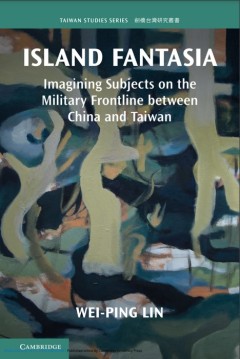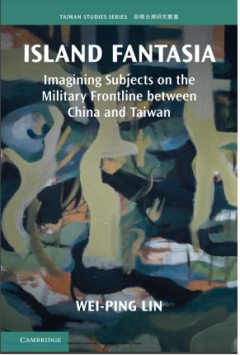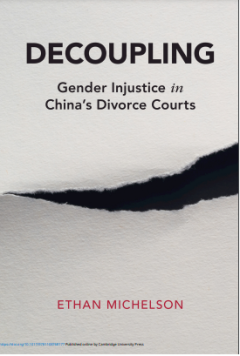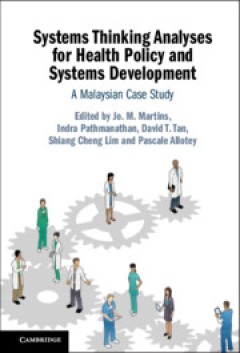Filter by

Island fantasia : imagining subjects on the military frontline between China …
The Matsu archipelago between China and Taiwan, for long an isolated outpost off southeast China, was suddenly transformed into a military frontline in 1949 by the Cold War and the Communist-Nationalist conflict. The army occupied the islands, commencing more than 40 long years of military rule. With the lifting of martial law in 1992, the people were confronted with the question of how to move…
- Edition
- 4
- ISBN/ISSN
- 9781009023481
- Collation
- xviii; 310p; ill.
- Series Title
- -
- Call Number
- 951.249 ISL W

Negotiating Mughal law : a family of landlords across three Indian empires
Based on a completely reconstructed archive of Persian, Hindi and Marathi documents, Nandini Chatterjee provides a unique micro-history of a family of landlords in Malwa, central India, who flourished in the region from at least the sixteenth until the twentieth century. By exploring their daily interactions with imperial elites as well as villagers and marauders, Chatterjee offers a new histor…
- Edition
- -
- ISBN/ISSN
- 9781108623391
- Collation
- xii, 233p. ; ill.
- Series Title
- -
- Call Number
- 349.5430903

Island Fantasia
The Matsu archipelago between China and Taiwan, for long an isolated outpost off southeast China, was suddenly transformed into a military frontline in 1949 by the Cold War and the Communist-Nationalist conflict. The army occupied the islands, commencing more than 40 long years of military rule. With the lifting of martial law in 1992, the people were confronted with the question of how to move…
- Edition
- -
- ISBN/ISSN
- 9781009023481
- Collation
- xvii, 330p, ill
- Series Title
- -
- Call Number
- 951.249 WEI

Decoupling: Gender Injustice in China's Divorce Courts
Michelson's analysis of almost 150,000 divorce trials reveals routine and egregious violations of China's own laws upholding the freedom of divorce, gender equality, and the protection of women's physical security. Using 'big data' computational techniques to scrutinize cases covering 2009–2016 from all 252 basic-level courts in two Chinese provinces, Henan and Zhejiang, Michelson reveals tha…
- Edition
- -
- ISBN/ISSN
- 9781108768177
- Collation
- xiii, 574p,: ill
- Series Title
- -
- Call Number
- 306.8930951 ETH

Systems thinking analyses for health policy and systems development : a Malay…
Health systems are fluid and their components are interdependent in complex ways. Policymakers, academics and students continually endeavour to understand how to manage health systems to improve the health of populations. However, previous scholarship has often failed to engage with the intersections and interactions of health with a multitude of other systems and determinants. This book ambiti…
- Edition
- -
- ISBN/ISSN
- 9781108954846
- Collation
- xlvii, 510 p. : ill.
- Series Title
- -
- Call Number
- 362.109595 MAR s
 Computer Science, Information & General Works
Computer Science, Information & General Works  Philosophy & Psychology
Philosophy & Psychology  Religion
Religion  Social Sciences
Social Sciences  Language
Language  Pure Science
Pure Science  Applied Sciences
Applied Sciences  Art & Recreation
Art & Recreation  Literature
Literature  History & Geography
History & Geography